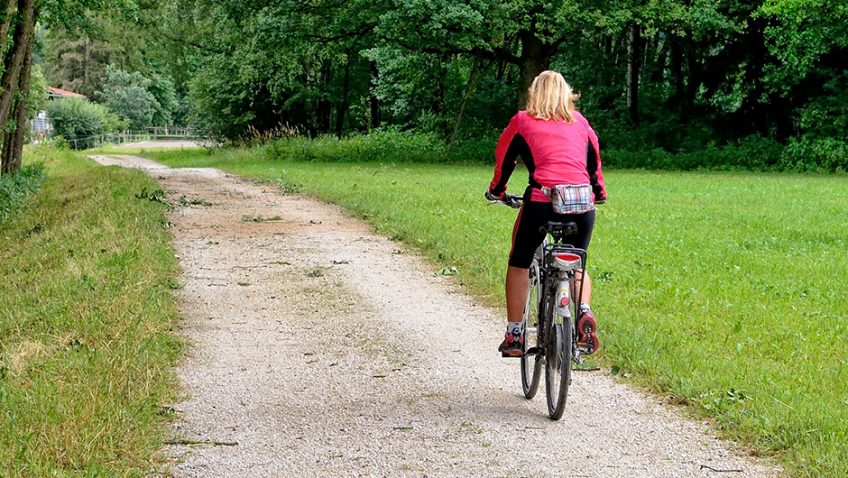Last month we asked the question: ‘why aren’t we talking about male mental health?’ and explored the stigma attached to mental health, particularly in men.
17th – 23rd March saw Sport Relief 2018 inspire people from all walks of life, up and down the country, to raise money to tackle various issues affecting people across the UK and the world.
Zoe’s story
One celebrity who rose to the challenge was TV and radio presenter Zoe Ball, who cycled 350 miles over five days from her birthplace of Blackpool to her hometown of Brighton, in tribute to her late partner, Billy Yates, and to get people talking about mental health.
Last May, after a long battle with depression, Billy Yates, a cameraman for the BBC’s Antiques Roadshow, was found dead after taking his own life.
The BBC documentary, Hardest Road Home, followed Zoe on her powerful journey as she reflected on her own loss, met people who’ve faced similar tragedies and encouraged people who have their own mental health struggles, or know someone who does, to speak out and to offer and find support.
Around 6,000 families lose someone to suicide in the UK every year. An equally shocking statistic is that the biggest killer of men in the UK under 45, is suicide. “Yes, this is a disease, and men suffering with depression need help,” said Zoe in a Radio Times interview. “If me doing this challenge helps one other person seek help, then it has been worth it.”
Support
Funds raised from Sport Relief support mental health projects across the UK. In the run up to her challenge, Zoe visited The Tomorrow Project, which has been set up to support individuals and communities to prevent suicide. The Tomorrow Project is managed by Harmless, an organisation that provides support to people who are at risk of self-harm; their friends, families and professionals.
For a list of organisations you can call if you need help or support, visit: www.nhs.uk/conditions/stress-anxiety-depression/mental-health-helplines/ or call The Samaritans on
116 123.
By Clare Holway





